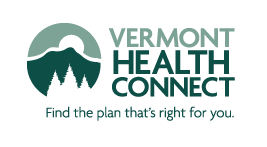Vermont's healthcare system is at a crossroads. The cost of healthcare, like so many goods and services in Vermont, is already high and is increasing at an unsustainable rate. This is making the overall affordability of our beautiful state more challenging for Vermonters, particularly for families, older Vermonters, and our state's rural workforce. It makes it harder for Vermont employers to recruit and hire, set competitive prices, and even remain in business. Together with housing, healthcare is a major part of our overall affordability crisis, which makes it harder to live in Vermont, harder to move to Vermont, and harder to stay in Vermont.
Focusing specifically on healthcare; rising costs are making it harder for Vermonters to get and afford the care they need. This puts hospitals and health systems at risk and damages our private insurers. It is already impacting and will continue to impact access and quality of healthcare for Vermonters, and ultimately degrade outcomes.
We must act to solve this critical problem.
The Agency of Human Services (AHS), is working with other parts of state government, the General Assembly, and our many healthcare partners around Vermont to tackle this important issue. Our goals are to:
- Work with communities, healthcare providers, insurers, and statewide partners to identify ways to improve outcomes while controlling costs.
- Help hospitals, health systems, and local communities to make decisions about the future of their systems so they remain fiscally sustainable and provide the care Vermonters need.
- Pursue new and existing federal funding sources to support transformation activities, including addressing affordability, access, and workforce development.
Bottom line, we want a system that provides the right care, at the right place, at the right time, at a price Vermonters can afford.
Updates
- Statement from AHS Secretary Jenney Samuelson on Next Steps on the Oliver Wyman Health Care Reform Report Recommendations
- New position now posted: Care Transformation Director
Frequently Asked Questions: Act 167 Hospital Transformation Report
Introduction
On September 18, 2024, an independent consultant hired by the Green Mountain Care Board (GMCB) issued a report on hospital sustainability in Vermont. This report, “Act 167 Community Engagement: Recommendations”, was written by the Oliver Wyman Group. This report is sometimes called the "Oliver Wyman Report."
The report examines Vermont’s demographic projections and hospital finances. It explores the effect those finances have on the health system overall, including the affordability of health care and private insurance. The report outlines Vermont’s healthcare affordability, access, and sustainability challenges. It also takes into account the impact of an aging population on the cost and availability of care.
The report highlights five key challenges facing Vermont’s healthcare landscape:
- decreasing affordability;
- deteriorating hospital financial sustainability;
- an aging and shrinking population;
- lack of access to health care; and
- inequity in health care.
The report makes specific recommendations for the Vermont General Assembly, the Agency of Human Services (AHS), and the GMCB. The report also makes a number of specific recommendations for each of Vermont’s 14 hospitals on how they can change to help ensure continued access to local care.
Some of these recommendations include restructuring, changing, or cutting specific services at certain hospitals. Understandably, many Vermonters are concerned about what these recommendations mean for them and their community. The State of Vermont developed this Frequently Asked Questions document to help Vermont communities understand what this report means and how it will be utilized.
What comes next?
The Vermont Agency of Human Services (AHS) is working in collaboration with GMCB, the Department of Financial Regulation, and the General Assembly on what comes next. AHS will:
- Support hospitals with technical assistance to determine the feasibility, cost, access and community impacts of these recommendations and other potential options – including impacts on access to care, the local economy and businesses.
- Establish a transformation advisory group to bring national expertise and support as we work to make our system more sustainable.
- Work with local communities, hospital and health system leaders, insurers, and other interested Vermonters to make sure we thoughtfully and carefully consider all aspects of our solutions.
Will the State Close Hospitals?
No. The goal of Act 167 and our healthcare reform efforts is to sustain local care options. We know Vermont faces unique challenges and we want our local healthcare systems to be accessible, affordable, and financially sound.
The State is currently evaluating the recommendations presented by Oliver Wyman in collaboration with local health system leaders and communities. The State will assist hospitals in evaluating proposals and planning for changes that ensure local access to affordable healthcare and align with the healthcare needs of our aging demographic.
Our goal is to work with hospitals and other healthcare providers to make sure they are sustainable, and do not close unexpectedly due to financial challenges. We want Vermonters to have access to the right care, at the right place, at the right time, at a cost that is affordable.
In order to achieve that goal, the data clearly indicates that Vermont’s healthcare system will need to evolve to meet the modern demands and changing demographics of Vermont.
Are the report’s recommendations binding? I’m worried that the report will force my hospital or doctor to close.
The report’s recommendations are not binding. We need to work with Vermonters like you, our hospitals and healthcare providers, insurance companies, and the Vermont General Assembly, to find ways to make our system more sustainable, higher quality, more equitable, and affordable. To accomplish these goals, Vermont will need to change the way some health and community services are provided.
Our path forward will include a conversation about the future of healthcare in Vermont. The report’s recommendations are just that — recommendations. They are a starting point, but they are by no means a foregone conclusion. We need to understand the impact, feasibility, and cost of the recommendations.
What data will you use to make decisions?
We are using data on utilization of services, travel times, known barriers in access to care, health equity and disparities, feasibility, cost, etc. The State is evaluating data relating to our future needs based on the changes in our population’s demographics. For example, given that Vermont’s population is aging, we know Vermonters will need an increase in services and supports for older Vermonters.
The State will also explore ways to measure access – meaning how hard it is for Vermonters to get an appointment for a service or how long it takes to get a procedure. We will also look at the health outcomes for patients when they receive care as well as how good the experience was. Similarly, we will look at ways to measure clinician experience and workload to help us support a healthy workforce.
How much did the State pay for the Oliver Wyman community engagement meetings and report?
The State had a fixed-price contract with Oliver Wyman for $1,050,000. The Green Mountain Care Board held this contract with the consultant, which was a requirement of Act 167 of 2022. This amount covered the work completed by the contractor from August of 2023 to September of 2024, including the comprehensive review and analysis of many data sources and sets, multiple rounds of public community meetings engaging thousands of Vermonters, interviews and working sessions with individuals, leaders, and advisory groups across Vermont, multiple meetings with hospital leadership, travel costs, and preparation and presentation of the final report. For more information on the work completed, please visit Community Engagement to Support Hospital Transformation | Green Mountain Care Board.
Will GMCB act on these recommendations in its hospital budget review process?
Act 167 (of 2022) did not alter or modify GMCB’s regulatory process or responsibilities. Hospital budgets will continue to be reviewed consistent with GMCB’s statutory obligations and duties pursuant to 18 V.S.A. § 9456 and § 9371. As described in this FAQ, AHS, in collaboration with State partners, is beginning the important work of evaluating the recommendations and options in this report and working with local communities and hospitals on implementation.



